Requisites for Building the Socialist Future
Jose Maria Sison | 22.03.2015 03:29 | Globalisation | Social Struggles | Workers' Movements | World
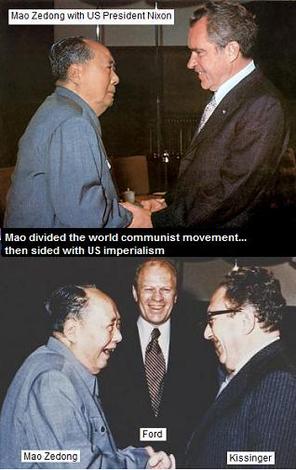
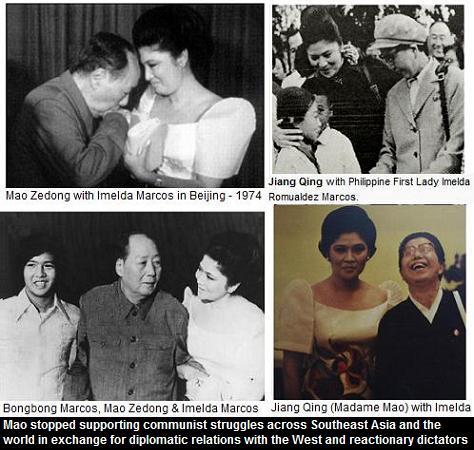
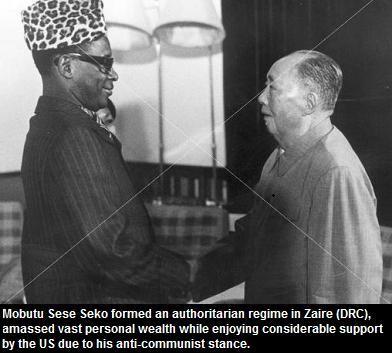
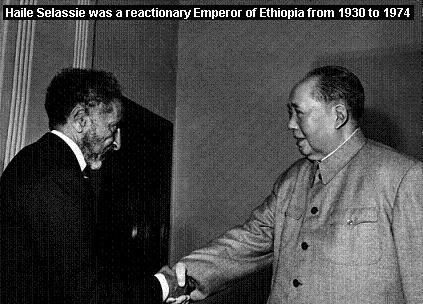
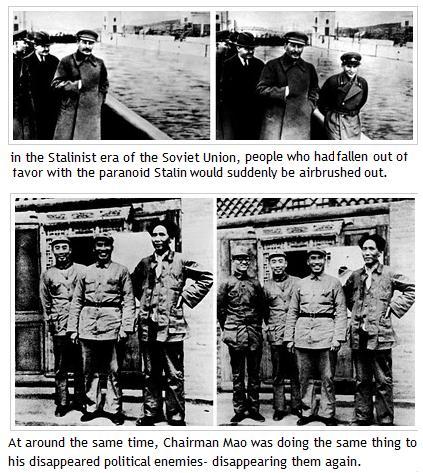
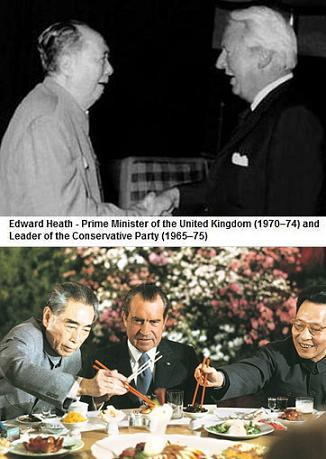
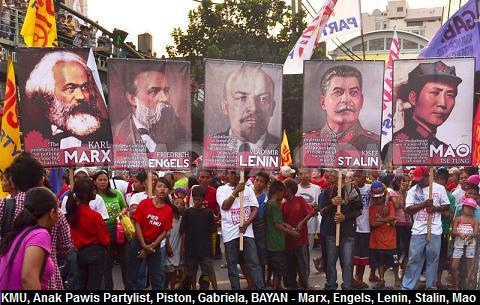


Second, grasp the potential for socialist revolution in various countries in the current circumstances. Third, build the subjective forces of the revolution, such as the revolutionary party of the proletariat, the mass organizations, effective alliances, the people’s army or self-defense units, and the organs of political power. Fourth, carry out the various forms of revolutionary struggle to overthrow the class dictatorship of the bourgeoisie. Fifth, build the socialist state of the proletariat on the basis of a broad people’s alliance, and engage in continuous socialist revolution in the political, socio-economic and cultural fields.
Learn from the historical experience of building socialism!
In the emergence and development of industrial capitalism, it has been unavoidable for the capitalist class to create and expand the working class from which it extracts surplus value and enables it to accumulate capital. It is a given fact that the modern industrial proletariat is the most advanced productive force. And in the course of class struggle against exploitation and oppression, it has become the most advanced political force capable of liberating itself and other exploited classes, and of building socialism as a result of being developed ideologically, politically and organizationally to fight and overthrow the exploitative and crisis-ridden capitalist system.
As a revolutionary class for itself and for other exploited people, the working class has been involved in and benefited from the three stages of development of its revolutionary theory and practice. In the first stage, in the era of free competition capitalism, Marx and Engels laid the fundamental principles of Marxism in philosophy, political economy and social science, and engaged in initial efforts to build the communist and workers’ movement. In the second stage, in the era of imperialism and proletarian revolution, the Bolsheviks led by Lenin and Stalin prevailed over the revisionism and opportunism of the Second International and the Mensheviks in order to lead the October Revolution that overthrew the Czarist rule and establish a socialist state, victoriously engaged in the socialist revolution and construction in the Soviet Union.
After Lenin died in 1924, Stalin brought the New Economic Policy to a successful conclusion. He adopted the series of five-year economic plans to bring about socialist industrialization, the collectivization and mechanization of agriculture, the education training and deployment of the biggest corps of scientists and engineers, the promotion of socialist culture and art and the mass mobilization of the Soviet people of various nationalities. After the arrest and trial of the traitors in the 1930s, the German Nazi intelligence could not find a fifth column for the Nazi invasion. Stalin victoriously led the Great Patriotic War against the fascists who killed 27 million Soviet people and destroyed 85 per cent of Soviet industry. He proceeded to industrialize the Soviet Union for the second time and encouraged the oppressed nations and peoples of the world to fight for national liberation and socialism.
In the same stage of the Leninist development of Marxism, the Communist Party of China led by Mao made a still far greater breach on the imperialist front in the East by winning the people’s democratic revolution through protracted people’s war and proceeding to carry out the socialist revolution. Mao can be credited with the consolidation of the revolutionary victory amidst the devastation brought about by the Japanese invasion and the civil war unleashed by Guomindang, the basic socialization of the Chinese economy, the Great Leap Forward to socialist industry and to establish communes, the socialist education movement, the critique of and improvement on the Soviet model of economic development and the vital support extended by China to the Korean people and the Indochinese people in their struggles for national liberation and socialism against US imperialist aggression and to all the peoples of Asia, African and Latin America.
It became the responsibility of Mao to confront the full-blown phenomenon of modern revisionism of Khrushchov and then Brezhnev. This paved the way for the third stage, that of Marxism-Leninism-Mao Zedong Thought, when Mao put forward the theory and practice of continuing the revolution under the dictatorship of the proletariat through the Great Proletarian Cultural Revolution (GPCR) in order to combat modern revisionism, prevent the restoration of capitalism and consolidate socialism. The GPCR prevailed from 1966 to 1976. But a coup d’etat headed by Deng Zhao Ping, behind a combination of Rightists and Centrists, overthrew the socialist state and began a series of capitalist reforms. This was a repeat of the coup d’etat headed by the revisionist chieftain Khrushchov in the Soviet Union in 1956.
It is of crucial importance for the scientific socialists or communists of today to learn the historical experience of the revolutionary proletariat in building socialism. We must appreciate the great socialist achievements of the proletariat, entire people and their leadership in the philosophical, political, social, economic and cultural fields, against imperialism, revisionism and opportunism. And we must criticize and repudiate the “Left” and Right opportunist errors of certain leaders at certain times and the biggest of all errors modern revisionism, which destroyed socialism under the pretext of creatively improving it through capitalist reforms. The positive and negative lessons from the past are a legacy to learn from.
The imperialists and their petty bourgeois camp followers are systematically using the total negation of the socialist revolution and socialist construction, especially from 1917 to 1956 in the Soviet Union and from 1949 to 1976 in China, in order to attack entirely the revolutionary cause of socialism. They use cheap reductionist psychological trick of the total negation of Stalin and Mao as the short cut to the total negation of socialism, and the proletariat, people and party that built socialism. In times of either the most strident or most subtle anti-communist propaganda anywhere, the communists and revolutionary people must resolutely uphold their principles and militantly do their work.
In what is already an extended period of strategic retreat for the international communist movement, as a result of the revisionist betrayal of socialism, the scope and impact of the revolutionary ideological and political work of the persevering communists may appear limited and ineffectual on a global scale or in certain countries, The imperialists may even appear invincible as they unleash the most brutal forms of class struggle and aggressive wars as the petty bourgeois reformists and neorevisonists seem to steal the struggle from the communist revolutionaries. But the resolute and steady ideological and political work of the communist revolutionaries will eventually resound, amplified by the ever worsening crisis of the bourgeois ruling system, and will certainly lead to the upsurge and expansion of the revolutionary movement.
Grasp the potential for socialist revolution in the current circumstances!
At present, all major contradictions in the world capitalist system are intensifying. These are the contradictions between the monopoly bourgeoisie and the working class in the imperialist countries; those between the imperialist powers and the oppressed peoples and nations; those between the imperialist powers and some countries assertive of national independence; and those among the imperialists themselves. The objective conditions are favorable for waging revolution. The broad masses of the people are in extreme suffering and are desirous of revolutionary change. There is a high potential for the rise of revolutionary forces for people’s democracy and socialism against imperialism.
In the imperialist countries, the contradiction between the monopoly bourgeoisie and the working class has been exacerbated by the rapidly accelerating adoption of higher technology in production, distribution, finance and communication, and the intensification of profit-taking by the monopoly bourgeoisie under the neoliberal economic policy. The crises of overproduction have recurred more frequently and more gravely. The attempts of the monopoly bourgeoisie to counter the crisis of overproduction and the tendency of the profit rate to fall by resorting to the tricks of finance capitalism, mainly the expansion of the money supply and credit to stimulate production and consumption, have led from one financial crisis to another until the financial meltdown of 2008, which has caused what is in fact a protracted global depression.
The contradiction between the social character of production and the private mode of appropriation has become utterly conspicuous, and the destructiveness and irrationality of capitalism are well manifested by high rates of unemployment, lower incomes among the working people, the thinning out of the middle social strata, and the growing poverty and misery even in imperialist countries. But the incipient people’s resistance is not yet being turned into a resounding demand for system change and for socialism because the revolutionary parties of the proletariat have not yet arisen or are still too few, small and weak to overcome the long running and current strategy and tactics of repression and deception employed by the state and private instruments of the monopoly bourgeoisie.
The contradiction between the imperialist powers and the oppressed peoples and nations has become far worse than ever before. The fact of neocolonialism in most underdeveloped countries has been aggravated by the rampage of neoliberalism. The broad masses of the people are suffering from rising levels of exploitation, oppression and aggression. They suffer the main brunt of imperialist plunder and war. Even in the so-called emergent markets favored by the imperialist outsourcing of manufactures and special flows of hedge funds, the people suffer from unemployment, reduced real incomes, and other dire consequences of the global depression.
As a result of extreme oppression and exploitation, there are revolutionary parties of the proletariat persevering in armed revolution for national liberation, people’s democracy and socialism in a number of underdeveloped countries. There are also similar parties preparing for armed revolution. Where the imperialist powers have unleashed wars of aggression, as in Iraq and Afghanistan, political and social turmoil among Islamic sects and ethno-linguistic communities has continued, and conflicting armies have arisen. But no communist party has yet taken advantage of this kind of situation.
Communist parties still exist in former revisionist-ruled countries but have not gone beyond parliamentary struggle. Certain states like Cuba, Venezuela, Bolivia and the Democratic People’s Republic of Korea stand out today for upholding their national independence and socialist aspirations against the blockades and provocations by US imperialism. They are holding their ground, even while the US has succeeded in destroying the Qaddafi government in Libya and is trying to overthrow the Assad government in Syria for the benefit of the US-Israeli combine in the Middle East.
The contradictions among the imperialist powers in economic, financial, security and other policy matters are fast coming to the fore. The US is now worried to death about the growing tendency of Russia and China to act independently and pose a challenge to its status as No. 1 imperialist power and sole superpower, in contrast to the previous period when the US gloated over the full restoration of capitalism in the two countries and proclaimed it as the final doom of the socialist cause. The ruling parties of both Russia and China have indeed betrayed the cause of socialism but they have brought to the top rung of capitalist powers the high sense of sovereign power and social capital that they had acquired under socialism.
The struggle for a redivision of the world has become more intense. It is a struggle for sources of cheap labor and cheap raw materials as well as for markets, fields of investment and spheres of influence. The US resents the Shanghai Cooperation Organization as a counter to NATO, and the formation of the BRICS economic bloc. Thus, it is carrying out the strategic pivot to East Asia to contain China, and is making provocations on the borders of Russia to destabilize Russia. Inter-imperialist contradictions in general, and inter-imperialist wars in particular, offer opportunities for developing revolutionary civil wars for national liberation and socialism. Remember how the first socialist state arose in connection with World War I and several socialist countries in connection with World War II.
Build the subjective forces of the revolution!
In relation to such objective conditions as the system of exploitation, the crisis, and the moods of the spontaneous masses, the subjective forces of the revolution are highly conscious solid organizations of people who are determined to wage various forms of revolutionary struggle in order to discredit, isolate and ultimately destroy the bourgeois ruling system. The objectives of the scientific socialists are to smash and destroy the bourgeois state and establish the proletarian or socialist state. Definite types of organizations are needed to realize these objectives.
Just as the bourgeoisie was the class agent to establish and develop capitalism, the modern industrial proletariat is the class agent to establish and develop socialism. Whatever is their level of consciousness about socialism at a given time, or whatever is the degree of influence of petty bourgeois and anti-socialist ideas on them, the blue collars and white collars in the labor force have their class interest which is increasingly under vicious assault by the monopoly bourgeoisie and which can, in due time, rouse them to rise up when the boiling point is reached. They are objectively the overwhelming majority in the well-developed capitalist economy, in contrast to the minority consisting of the capitalist owners and their highest paid subalterns. They have the potential of becoming conscious that they can get rid of the bourgeois rule and can run and expand the national industrial economy without the bourgeois proprietors and managers.
No matter how large is the peasantry in a country, it cannot lead the socialist revolution because its perspective is, at best, to own the land through democratic revolution or reform, and the possibility for socialist cooperation and mechanization is made possible by the proletariat in power. At any rate, the proletariat cannot seize and hold power without a strong alliance with the peasantry in any agrarian country. The class tendency of the petty bourgeoisie is to serve the bourgeois system and even to climb to the level of the big bourgeois. Marx himself had to change his petty bourgeois outlook and remould himself into a proletarian revolutionary to become a scientific socialist.
The most important subjective force to build for socialist revolution is the party of the revolutionary proletariat – the Communist Party or the workers’ party. It is the advanced detachment of the entire working class and the trade union movement. It builds and strengthens itself ideologically, politically and organizationally for winning the battle for democracy by mobilizing the workers and other working and exploited people; for smashing the state power of the bourgeoisie; and for building socialism in transition to communism. It propagates the revolutionary theory and practice of the proletariat. It proclaims and carries out the general political line, and the strategy and tactics in the revolutionary struggle. It recruits as Party members the most advanced elements in the revolutionary mass movement.
The proletarian revolutionaries must rely on the masses and do mass work. They must engage in social investigation in order to learn from the masses their basic problems and urgent needs, and how to arouse, organize and mobilize them in order to unite and strengthen themselves against their powerful adversaries. In industrial capitalist countries, they must focus mass work among the workers in their work places and communities. They must build revolutionary unions where no unions yet exist or even if they must at first form and multiply communist cells within the reactionary unions. They must trust the workers in embracing the revolutionary theory and practice of their own class. In agrarian or underdeveloped countries, they must build the revolutionary trade unions and peasant associations at the same time, and strengthen the basic alliance of these two classes. The revolutionary worker’s party must field cadres and organizers to the countryside to arouse, organize and mobilize the peasants and develop proletarian revolutionaries from among their ranks.
It is not enough to build the basic class organizations of the toiling masses of workers and peasants. The proletarian revolutionaries and mass activists must build certain types of organizations like people’s cooperatives and organizations of the youth, women, teachers, health workers, cultural workers and other low-income people. They must encourage the petty bourgeoisie to form its own progressive organizations in rejection of the exploiting classes and in support of workers and other working people. Revolutionary alliances of the working people with the progressive organizations of the petty bourgeoisie are of great importance. The progressive petty bourgeoisie carries with it to the socialist cause their various professional and technical skills and can serve as articulators and molders of public opinion. The progressive bourgeois can become allies of decisive importance and can remould themselves into proletarian revolutionaries.
The revolutionary party of the proletariat answers the central question of revolution when it builds a people’s army for seizing political power. But the situation may not yet be ripe for establishing the people’s army in certain countries. In preparing for the eventuality of creating a people’s army and waging an armed revolution, the Party and the pertinent mass organizations can form discreet self-defense units and engage in mass training for self-defense, but always avoiding provocations that lead to unnecessary or untimely armed clashes that give the enemy to unleash white terror against the revolutionary forces and people. In the US and certain countries, it is a matter of constitutional right for ordinary citizens to bear arms to restrain or prevent the state from misusing its armed power against the people. Practical legitimate reasons for the private possession of firearms include self-defense against common criminals, fondness for hunting, and membership in a sports club.
In the application of the strategy of protracted people’s war by encircling the cities from the countryside in underdeveloped countries, people’s committees of self-government are formed as organs of political power in local communities. Even in the absence of a revolutionary civil war, such organs of political power can be established with the support of the mass organizations and can perform certain non-violent functions of local government in communities of the working people. Even at the national level, an alliance of progressive political parties and mass organizations can appear and act like a government by forming a people’s shadow cabinet, with major departments that monitor and criticize the policies and actions of the reactionary government and voice out the demands of the people and the mass movement.
Carry out various forms of struggle to overthrow the capitalist system!
Ideological building is the first requisite and continuing fundamental task in building the revolutionary party of the proletariat. It avails of the treasury of Marxist-Leninist works written by the great communist thinkers and revolutionary leaders in the course of victorious revolutionary struggles against the capitalist system, reaction and revisionism of the classical and modern type. These works provide the principles and methods to guide the analysis of the history and circumstances of the people in a country, the formulation of the revolutionary program of action, and the concrete practice of revolution by the proletarian revolutionaries and the people.
The theory and practice of Marxism-Leninism is ever developing in relation to the world and to the particular country where it is applied. It is comprehensive and profound as it musters the proletarian revolutionary outlook and scientific knowledge in criticizing and repudiating class exploitation and oppression; in drawing up the general political line, strategy and tactics; in striving to end the capitalist system; and in proposing socialism as the preparation of communism. It requires the concrete analysis of concrete conditions, and the testing of ideas in social practice. It demands within the proletarian party a struggle against petty bourgeois subjectivism, be it in the form of dogmatism or empiricism. The consequence is that the party is well equipped to wage ideological struggle against the theorists and ideologues of the bourgeoisie and in constantly combating non-proletarian ideas and tendencies inside the party.
Ideological building serves to firm up the political building of the proletarian revolutionary party and reinforces the line of political struggle against the big bourgeoisie in different conditions. In the developed capitalist countries, the proletariat can regard the forces of social production as the basis for socialism, but it also has to win the battle for democracy by winning over the petty bourgeoisie and all disgruntled sections of capitalist society, in order to have the overwhelming majority of the people for the uprisings to overthrow the class dictatorship of the bourgeoisie.
The capitalist class never gives up its power and wealth voluntarily but uses violence and deception to hold on to these, and it does not hesitate to use fascism to suppress the forces of socialism and the people. It is therefore necessary for the proletarian party to develop a revolutionary mass movement and prepare the means for frustrating or defeating state terrorism, and for establishing the state power of the proletariat. The proletariat cannot fulfil the historic mission of building socialism without state power. This is proletarian class dictatorship against bourgeois class dictatorship, and is at the same time proletarian democracy for the proletariat and the rest of the people.
In the underdeveloped or agrarian countries, where the peasantry still comprises the majority of the population, the proletarian revolutionary party adopts the line of people’s democratic revolution led by the proletariat but is based mainly on the worker-peasant alliance. It can adopt the strategic line of protracted people’s war, encircling the cities from the countryside in order to accumulate the political and armed strength to eventually seize power in the cities and on a national scale. In addition to the basic worker-peasant alliance, the party can build further alliances with the urban petty bourgeoisie and the middle bourgeoisie, and take advantage of splits among the reactionaries.
In all kinds of countries, legal and illegal forms of struggle need to be carried out by the proletarian revolutionaries who lead a broad range of revolutionary forces. Even where there is yet no armed revolution by the proletariat and the people, the bourgeois can be repressive and outlaw activities that are legal in other times or other countries. When armed revolution is already surging, certain legal forms of struggle are still possible and necessary to isolate and weaken the enemy. In the general run of third world countries, the people suffer the main brunt of imperialist exploitation, oppression and aggression, thus the conditions for waging revolutionary wars are far more favorable than in the imperialist countries. The best possible situation for the world proletarian revolution is the interaction of revolutions in countries with different levels of development.
The revolutionary mass movement can pursue certain kinds of economic struggle, like strikes and blockades by the workers and peasants, boycotts or interdiction of goods and enterprises of the imperialist enemy, undertaking industrial cooperatives of workers, handicraft cooperatives of artisans, land reform and improvement of agricultural production. But it cannot rely mainly on these to take over the national economy. It is the politico-military struggle that makes the bourgeoisie lose its economic power and bureaucratic offices.
The proletarian revolutionaries, the cultural activists and the people can also engage in cultural struggle. They can create and promote cultural works to inspire more people to join and support the revolutionary movement. But only the politico-military struggle can make the reactionaries lose their control over the secular cultural institutions. Even then, unlike the power and wealth of the big bourgeoisie which can be confiscated, the ideas, sentiments and habits of the reactionaries will persist and can only be overcome or re-channelled persuasively by persevering in the revolutionary education of the current and future generations.
Build the socialist state and engage in socialist revolution in all fields!
Consequent to the smashing and dismantling of the military and bureaucratic machinery of the bourgeois state, the proletarian revolutionary party, the proletariat and the broad masses of the people can establish the socialist state and carry the socialist revolution forward, uphold and defend the national independence and socialist revolution, promote socialist democracy, socialize the commanding heights of the economy, carry out land reform and other bourgeois democratic reforms when necessary as transition measures, foster a patriotic, scientific and socialist system of education and culture, establish diplomatic and trade relations with all countries, and uphold proletarian internationalism and anti-imperialist solidarity.
The democratic state power must protect and defend the proletariat and the people against imperialism and the exploiting classes. It must ensure and encourage the exercise and enjoyment of rights among the broad masses of the people individually and collectively. The revolutionary party of the proletariat must take the lead in the correct handling of contradictions of the people and must give full play to democracy. It must take care that the contradictions among the people are not confused with those between the people and the enemy.
The state must have a republican socialist constitution and must be under the leadership of the revolutionary party of the proletariat, on the basis of the participation and support of the broad masses of the people, and in cooperation with other democratic parties and mass organizations. The main component of state power is the people’s army under the absolute leadership of the Party, and must be capable of defending national sovereignty and the socialist revolution against internal and external threats.
The constitution must prohibit imperialist intervention and domination, and the rule of any exploiting class. It must have a bill of rights which gives full play to democracy among the citizenry and all the patriotic and progressive forces within the framework of socialism. It must provide for the distinct executive, legislative and judicial branches of government, their powers and their obligations, and the methods for constituting them.
The national people’s congress or parliament must have an Upper House of Labor which upholds the socialist constitution and ensures that legislation by the Lower House of Commons conforms to the constitution and to the socialist principles, policies and plans for developing the political, socio-economic and cultural system. The members of the House of Labor must be elected representatives of the Party and the workers of all major industries. The House of Commons must be a bigger body which includes representatives of the patriotic and progressive classes, forces and sectors and national minorities who are elected by the people at the appropriate levels of political subdivision. The national people’s congress or parliament may be replicated at lower levels. And people’s consultative assemblies may be formed at any level to prepare and support the work of their respective congress or parliament.
As soon as the socialist republic is established, such commanding heights of the economy as strategic industries, sources of raw materials, and the major means of transport and communication will come under public ownership. Transitory measures may be adopted to allow land reform and other bourgeois democratic reforms, overcome the consequences of war and enemy blockades, and revive the economy in the quickest way possible. But all these measures are subject to the steady process of cooperativization and socialization. As soon as possible, a series of 5-year economic plans must be adopted and implemented to develop socialist industry, agricultural cooperation and mechanization, and such social services as public education, cultural work, health care, housing, sports and recreation..
The centralized economic planning must provide for a well-balanced allocation of resources and development. The strategic industries must be in the lead of development and agriculture must be the base of the economy, ensuring food self-reliance and some major raw materials. But light industries, which will provide basic consumer and producer goods as well as the social services, must be developed as quickly as possible in order to serve the immediate basic needs of the people.
There must also be a well-balanced distribution of economic development tasks between the central and lower levels of economic and social ministries or departments. The objective is to spread economic development nationwide, even as various levels of processing can be located close to the source of raw materials, and certain light industries and social services can be assigned to lower levels of the government.
In socialism, the general principle of compensating people for their work is to each according to his or her deeds. There will still be wage differentials on the basis of the quantity and quality of the work done. But certainly, the needs of those who have retired and those who are unable to work permanently or temporarily (children, women on maternity leave, the elderly, the sick, those with physical or mental impairments, and so on) will be provided for. As productivity rises and production expands, it becomes possible to decrease the number of working hours and raise the real income, unlike in the capitalist system in which the capitalists press down wages in order to maximise private profit. In the socialist system, aside from the assurance of full employment and rising real wages, the surplus value that used to be privately accumulated by the exploiters becomes social capital for expanding and improving production, infrastructure, social services, efficient administration, scientific and technological research and development, artistic cultural work and public performances, defense capabilities and environmental improvement.
It is realistic and reasonable to expect that, in so many vital respects, socialism advances towards communism. The rise in the quantity and quality of production and the efficiency in its organization, the decrease of working hours and increase of real income, and the expansion of social services move towards a classless society in which the needs for subsistence, good health, recreation and cultural upliftment of the individual and the entire community are fulfilled. But to proclaim prematurely the end of classes and the class struggle, and the withering away of the worker state is to encourage the abandonment of the proletarian revolutionary stand, viewpoint and method of thinking. This translates to becoming blind to the persisting reactionary die-hards and potentially new shoots of the bourgeoisie in socialist society and to the continuing threats from imperialism and the international bourgeoisie.
Lenin pointed out that socialism will take a whole historical epoch because of the persistence of imperialism and the increased resistance of the defeated domestic bourgeoisie by ten fold. By virtue of the proletarian revolutionaries’ respect for the freedom of thought and belief, the bourgeoisie can still persist and grow by using the bureaucracy, religious institutions and modern cultural institutions as refuge and cover, and ride on old customs and habits that favor reactionary thinking and acting. Mao observed the emergence and growth of the phenomenon of modern revisionism with a growing petty bourgeoisie as its social base in the Soviet Union and Eastern Europe, and also the persistence of the bourgeoisie in Chinese socialist society. Thus, he fought against modern revisionism since the 1950s and eventually put forward the theory of continuing revolution under proletarian dictatorship.
It is easy to understand that it is foolish to suggest the withering away of the worker state in the face of imperialism still riding roughshod over the people of the world. After the full restoration of capitalism in former revisionist-ruled countries, it should also be easy to understand that modern revisionism has been the most lethal poison to socialism. It is proven by history that it is possible to build socialism in one country and then several countries for several decades. But communism cannot be achieved without defeating imperialism, modern revisionism and reaction on a global scale. Thus, proletarian revolutionaries consider it of the highest importance to uphold proletarian internationalism against these anti-socialist and anti-communist adversaries.
The proletarian revolutionary parties and revolutionary mass organizations of the world must unite. They must strive to develop mutual understanding, fraternal relations, and mutual support and cooperation. Giving life to the slogan, “Workers of all countries, unite!”, the socialist state must give uppermost importance to the internationalist unity of the working class through the establishment and development of fraternal relations of working class parties and socialist states. It must strive to strengthen solidarity of all peoples, revolutionary parties and mass movements around the world in order to fight and defeat imperialism on a worldwide scale. Upon the global defeat of imperialism, communism is realizable.
Jose Maria Sison
Founding Chairman, Communist Party of the Philippines (CPP)
Chairperson, International League of Peoples’ Struggle (ILPS)
 http://www.indymedia.org.uk/en/2014/06/516999.html
http://www.indymedia.org.uk/en/2014/06/516999.html
Jose Maria Sison
 Homepage:
http://www.indymedia.org.nz/articles/2851
Homepage:
http://www.indymedia.org.nz/articles/2851
Comments
Hide the following comment
theres a New Synthesis
23.03.2015 00:56
you should check out the New Synthesis of Communism of Bob Avakian, chairman of the rcp usa.
check this out: avant garde hip hop:
avakianist